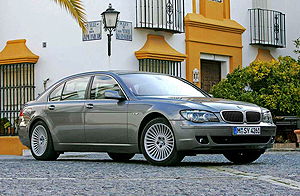
Friend number 1 who collects Mercedes-Benzes recently jumped fences and bought a BMW. Friend number 2 who works for Mercedes-Benz corporate headquarters was horrified. Their debate on the subject made me wonder does being loyal to one car brand make you a glutton for happiness, or punishment? (Photo credit: Netcarshow.com)
Erica is a friend of mine who recently became the owner of a used 2006 BMW 750Li. An enviable purchase by any stretch of the imagination, but one she agonized about due to feelings of brand loyalty to another marque.
Erica had grown up a car buff with an appreciation of Mercedes-Benzes like I did, and bought her first one used (an ’88 190E) in 1996. We became friends after meeting in 1998 at a car club show. Today, their collection has grown to over a fourteen Benzes spanning from the mid-1970s to the mid-1990s.
Erica, her husband, and my wife have spent a lot of time together fixing, detailing, and displaying our vehicles at shows. Along the way we met Matt who works for Mercedes-Benz headquarters. Although a few years younger than Erica and myself, Matt shared the same fanaticism we did and bonded with us immediately. His first car in high school was a well-worn ’78 Mercedes 300 Diesel coupe, and he has owned nothing but Mercedes-Benzes since…fluctuating between two to four vintage ones at any given point, and leasing new ones on M-B employee price plans.
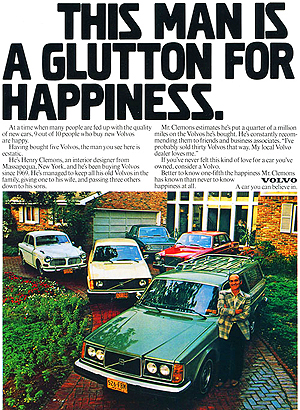
This 1979 Volvo advertisement makes a convincing argument that brand loyalty is the way to automotive nirvana. (Photo credit: Volvo Cars of North America)
On different levels, the three of us are living proof that when you have a propensity to collect cars and a fondness for a car make, owning one tends to lead to owning another until you reach an “equilibrium” with available space and funds. Not to mention spousal tolerance.
Matt saw Erica’s purchase of the BMW as a betrayal of the Mercedes-Benz marque and his employer he identified with so strongly. “Are you crazy, what’s wrong with you!?” he asked. I must admit I had a certain respect for Matt, because this man is so loyal to his favorite car company that he takes it personally when someone snubs or denounces a Mercedes. That’s commitment.
A healthy amount of the car-buying public will always be repeat buyers of the same make, no questions asked. I used to feel as Matt does, but after years of being in the automotive field my enthusiasm for various marques depends on how good what they’re offering is. For folks like Matt, car companies are akin to sports teams and not supporting your chosen one through thick and thin equates to being a traitor.
Contrary to what anyone living in my home state of New Jersey may believe, this sentiment is still alive and well especially among buyers of American full-size pickup trucks. Where my wife is from in Wisconsin, pure brand loyalty goes much further below the surface than bragging rights about horsepower or towing capacity. Ford guys always buy Fords, Chevrolet guys always buy Chevrolets, and neither group plans to switch sides any time soon.
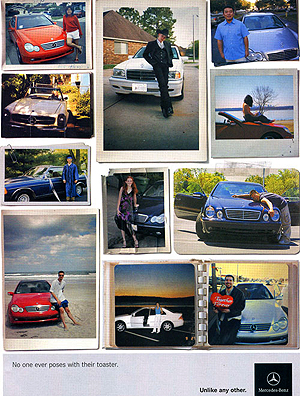
This 2004 Mercedes advertisement focuses on die-hard loyalists. One of the pictures in this ad is of my friend “Matt” with his first car at age 18 wearing the blue graduation cap and gown. (Photo credit: Mercedes-Benz USA)
Brand loyalty represents being happy with what you’ve got. I envy that because I seem to be cursed with automotive wanderlust along with a nagging feeling there’s a better product is just over the next hill. For example, if I had bought a new Camaro SS I’d be tormented by the new Mustang Cobra coming out. And if I bought a Mustang Cobra then I’d be concerned Dodge was going to put a turbine engine in its Challenger SRT8.
The positive side is I’m not subject to any one carmaker’s styling or quality whims. In the automotive service business, it’s easy to see when manufacturers decide to save a few pennies where they think no one will be the wiser. And in my lifetime I’ve noticed many an automotive manufacturer waver on the important belief that producing the best car they can is the way to reach automotive nirvana. The cycle that seems so unfortunately consistent among reputable car makers is as follows: work up to producing high quality cars, gain customers, forget what got them there, cut corners on quality to save money, lose customers.
I’ve owned many Volkswagens and Audis, and these days I have gained great respect their products developed under the leadership of former company chairman Ferdinand Peich. I’ve seen General Motors forget priorities for decades until an awakening began five years ago. Even Toyota has suffered quality glitches and recalls in recent years, a victim of becoming too big too fast. Honda, BMW, Subaru, Ferrari and Porsche are examples that come to mind quickly attempting to think of car makers that have had strong ideals, and have never wavered from them. I hope to see an American brand become such an example – Ford and GM are on their way if they do not become sidetracked.
Because when it comes to something you’re passionate about, who wants to settle for mediocrity?
About Sean
Welcome to Classic Cars Today Online! We seek to explore the subject of classic vehicles from the 1950s through today. It is our belief that a car needn't be old to be respected and admired for graceful design, historical significance, and future value. As founder and Editor-In-Chief, I welcome contributions from you about your own car-related interests and ownership experiences. As far as myself, I've worked in the automotive service field and have been a contributor to Autoweek Magazine, The Star, Mercedes Enthusiast Magazine, Examiner.com and more. Currently, I'm a copywriter and own several foreign and domestic classic cars. In my spare time, you'll find me serving as Technical Editor and officer of several car clubs, being a concours car show judge, and meeting some great folks around the tri-state NY / NJ / Pennsylvania area at car shows. - Sean Connor
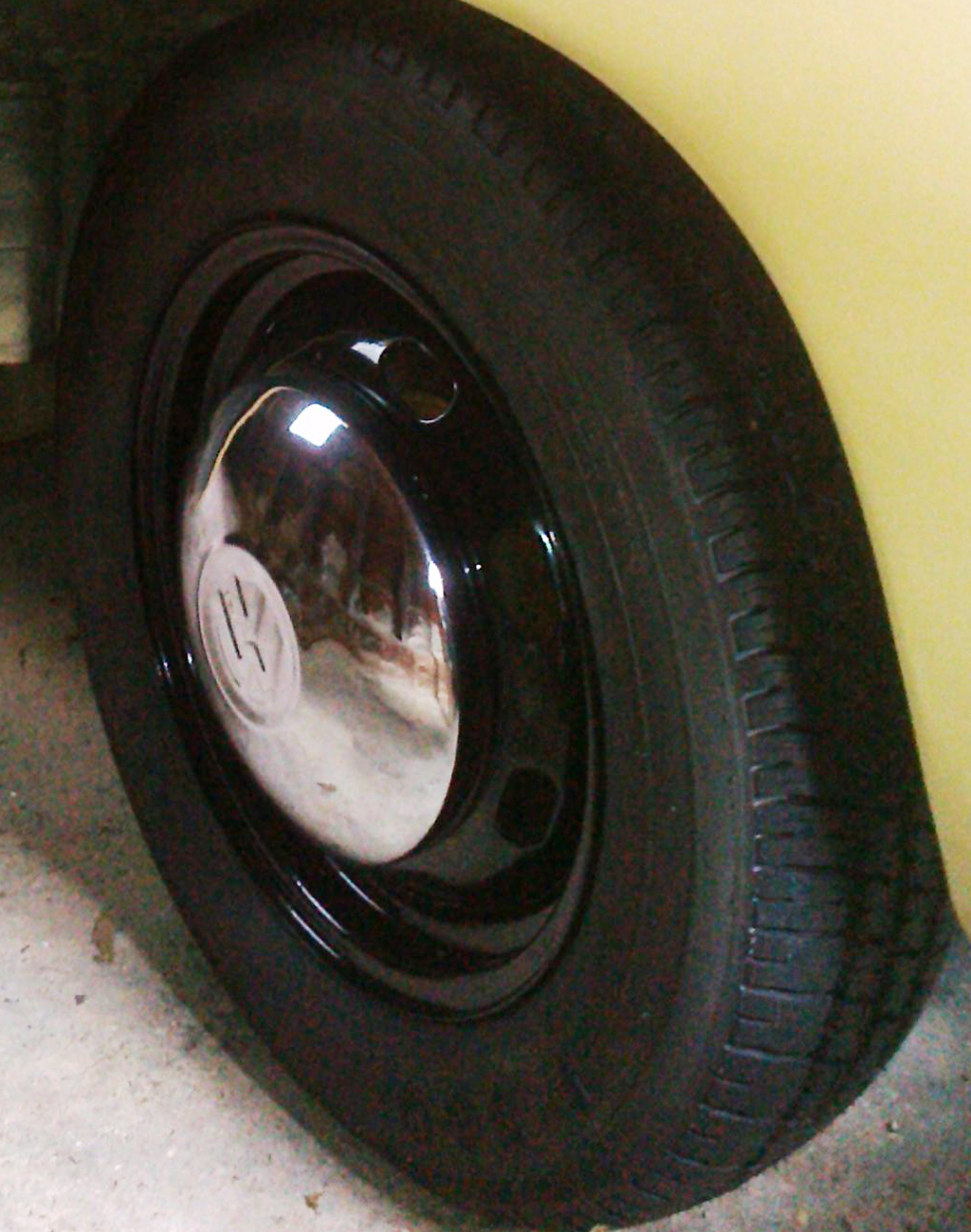 1969 Volkswagen Karmann Ghia wheelPhoto: Genna Rae
1969 Volkswagen Karmann Ghia wheelPhoto: Genna Rae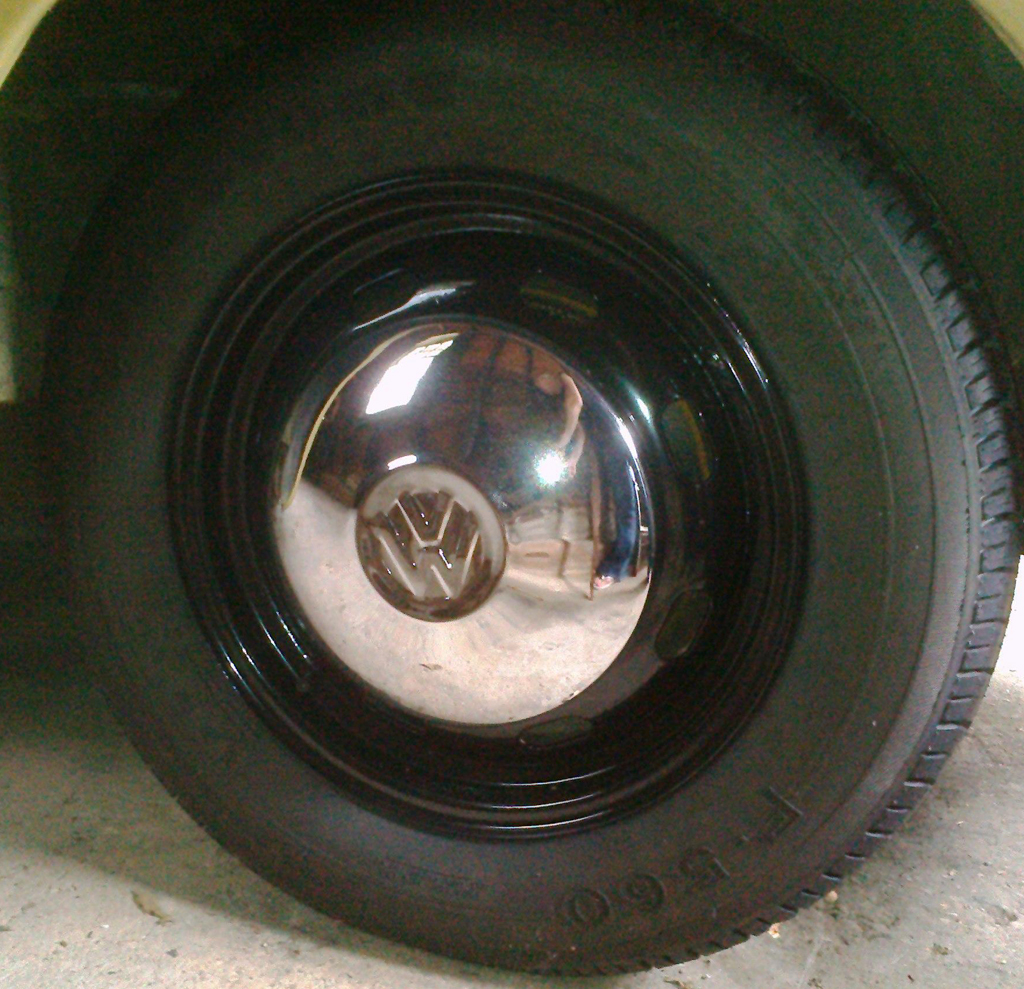 1969 Volkswagen Karmann GhiaPhoto: Genna Rae
1969 Volkswagen Karmann GhiaPhoto: Genna Rae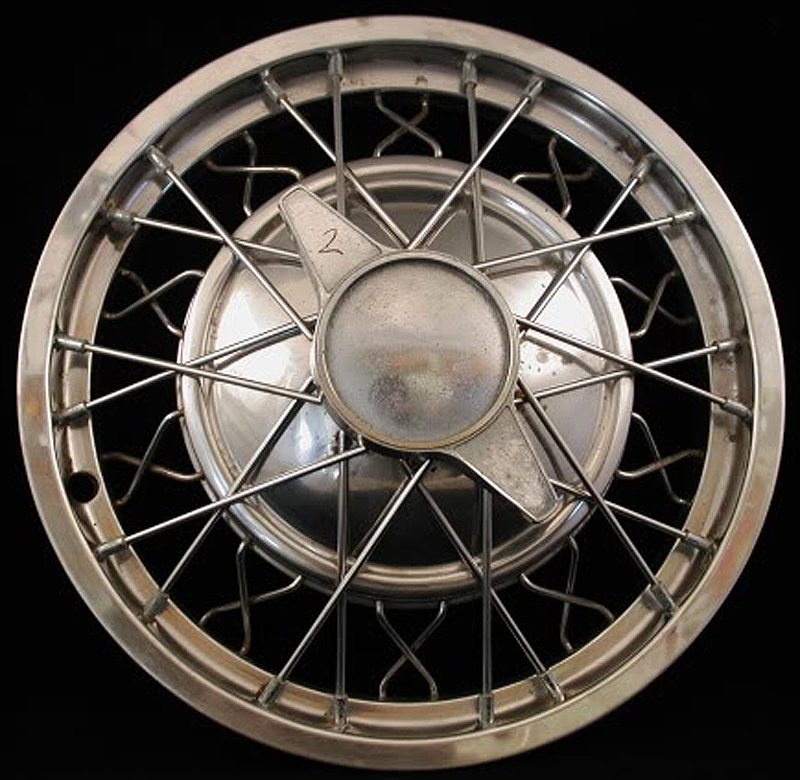 50s Calnevar aftermarket hubcaps shPhoto credit: T. Gorski
50s Calnevar aftermarket hubcaps shPhoto credit: T. Gorski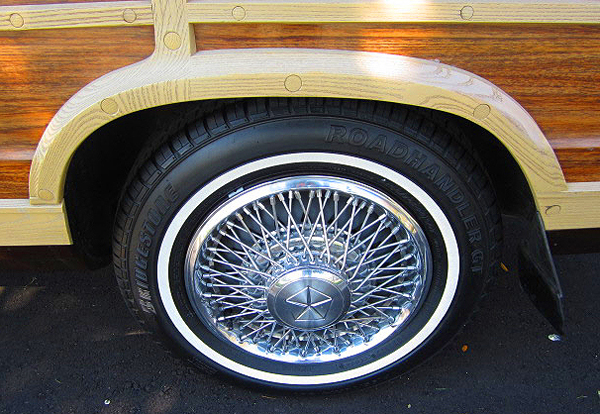 Chrysler LeBaron Town & Country wheel cover
Chrysler LeBaron Town & Country wheel cover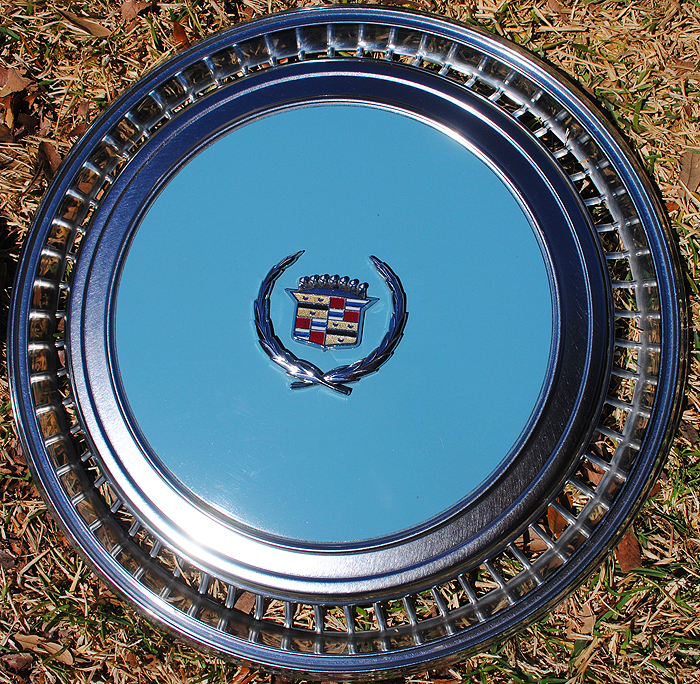 Cadillac Eldorado painted wheel cover 1976-78Photo: Nate Smith
Cadillac Eldorado painted wheel cover 1976-78Photo: Nate Smith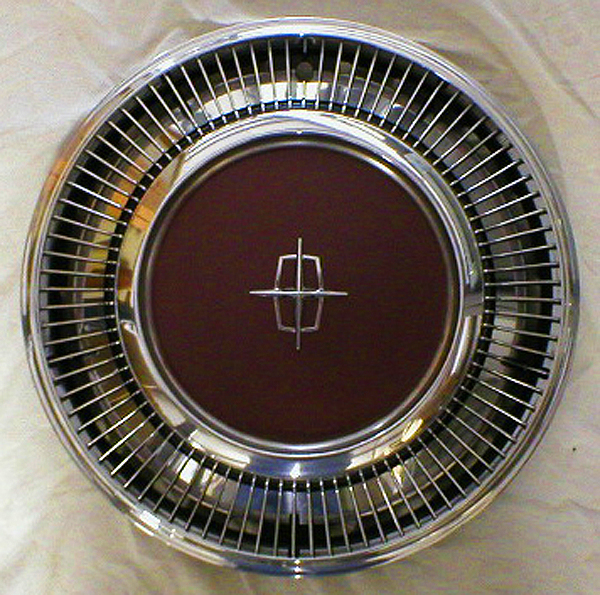 1974 - 1976 Lincoln Continental wheel coverPhoto credit: H. Carver
1974 - 1976 Lincoln Continental wheel coverPhoto credit: H. Carver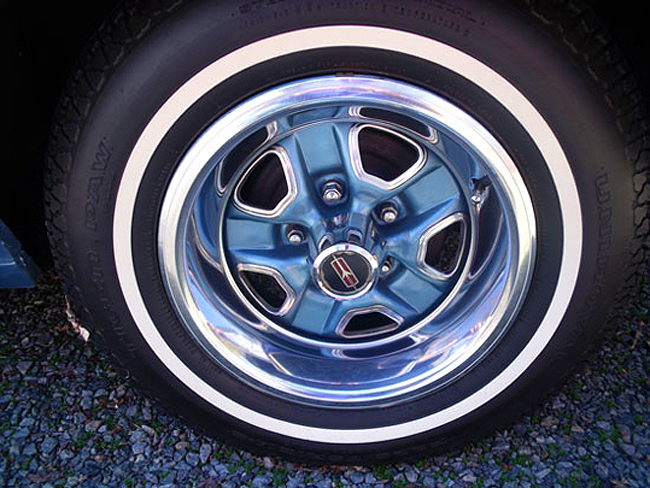 1969 Oldsmobile Cutlass Supreme rallye wheelPhoto: C. DeMarco
1969 Oldsmobile Cutlass Supreme rallye wheelPhoto: C. DeMarco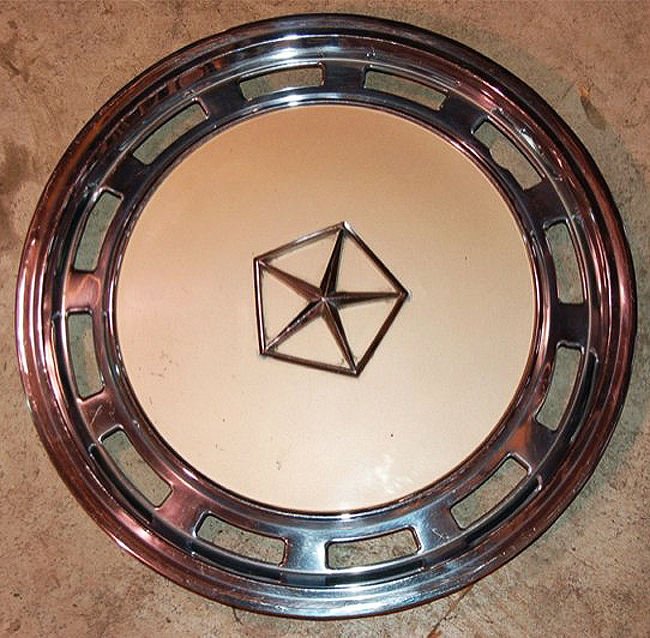 Chrysler 1980s painted wheel coverPhoto: O. Stein
Chrysler 1980s painted wheel coverPhoto: O. Stein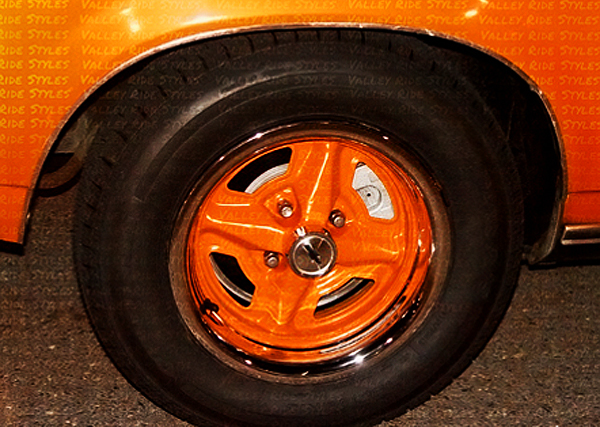 13-inch General Motors color matched wheel 1975-80Photo: Valley Ride Styles
13-inch General Motors color matched wheel 1975-80Photo: Valley Ride Styles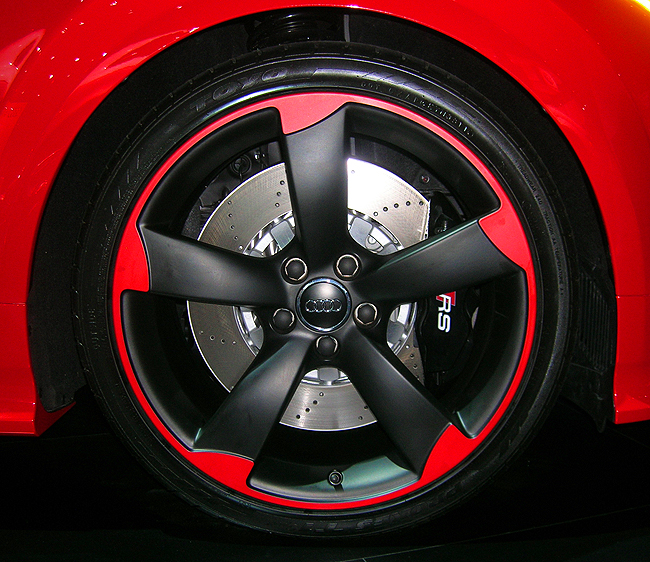 Audi TT RS wheelPhoto: Sean Connor
Audi TT RS wheelPhoto: Sean Connor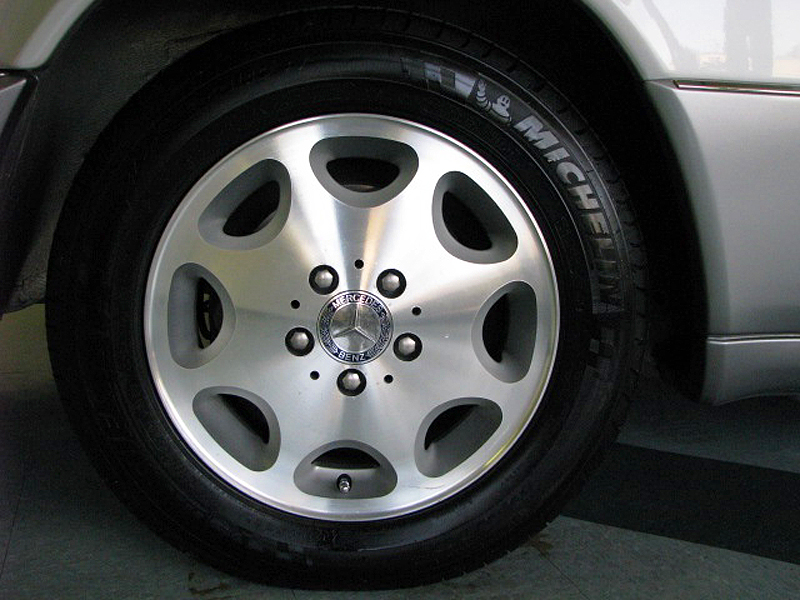 1994 - 1995 Mercedes E320 Cabriolet wheel
1994 - 1995 Mercedes E320 Cabriolet wheel 2012 Volkswagen Beetle 2.5 standard wheel
2012 Volkswagen Beetle 2.5 standard wheel 16-inch black steel Land Rover off-road wheelsPhoto credit: J. Getty
16-inch black steel Land Rover off-road wheelsPhoto credit: J. Getty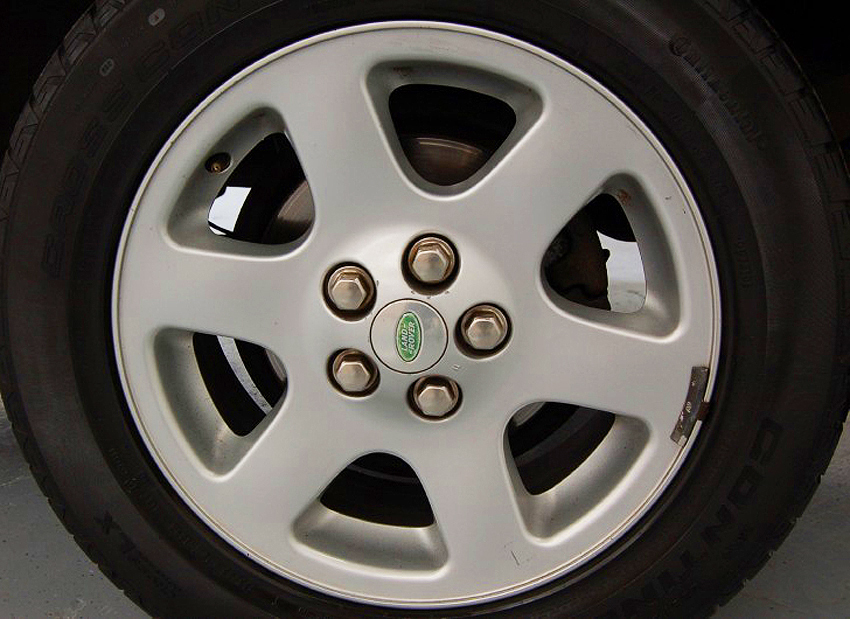 18-inch aluminum wheel on 2003 - 2004 Land Rover Discovery HSE
18-inch aluminum wheel on 2003 - 2004 Land Rover Discovery HSE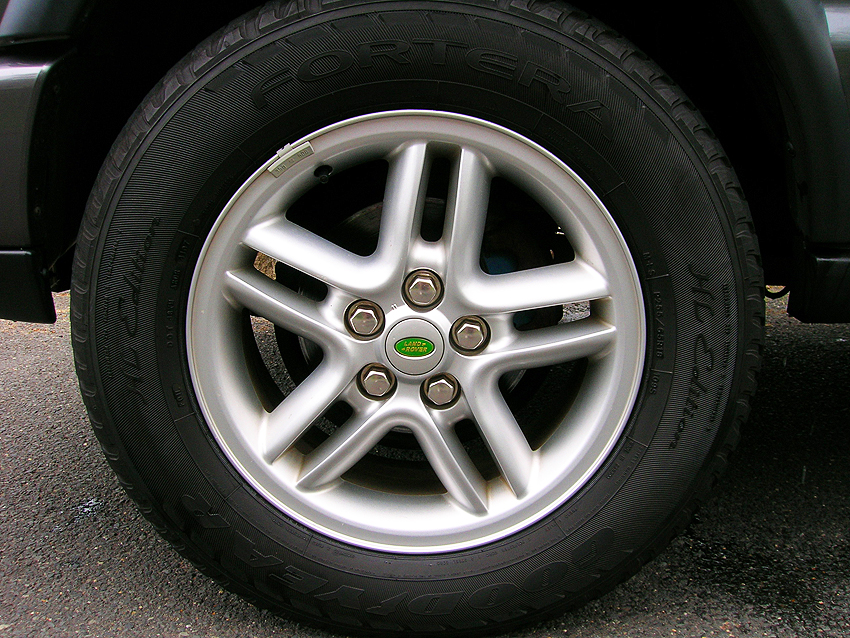 18 inch "Hurricane" aluminum wheel standard on 2002-2004 Discovery SE
18 inch "Hurricane" aluminum wheel standard on 2002-2004 Discovery SE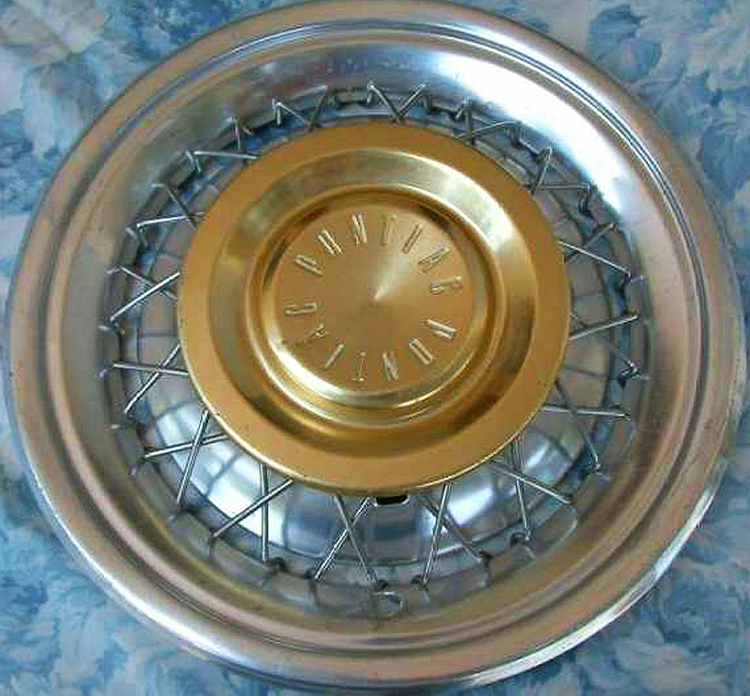 1957 - 1958 Pontiac wire wheel cover(Photo credit: R. Ulrich)
1957 - 1958 Pontiac wire wheel cover(Photo credit: R. Ulrich)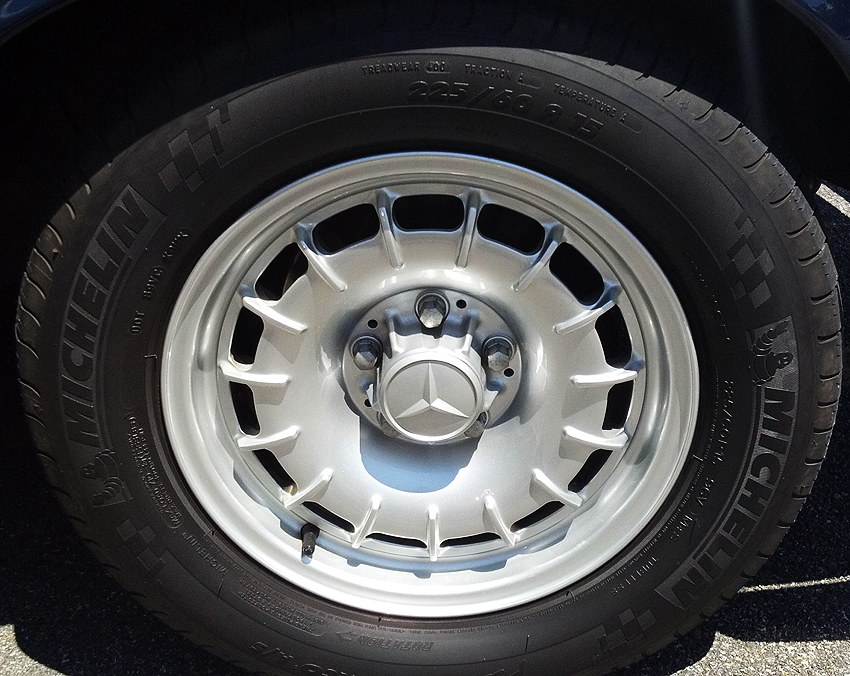 1972 Mercedes 280SE 4.5 equipped with repro 15-inch alloy wheels(Photo credit: Sean Connor)
1972 Mercedes 280SE 4.5 equipped with repro 15-inch alloy wheels(Photo credit: Sean Connor)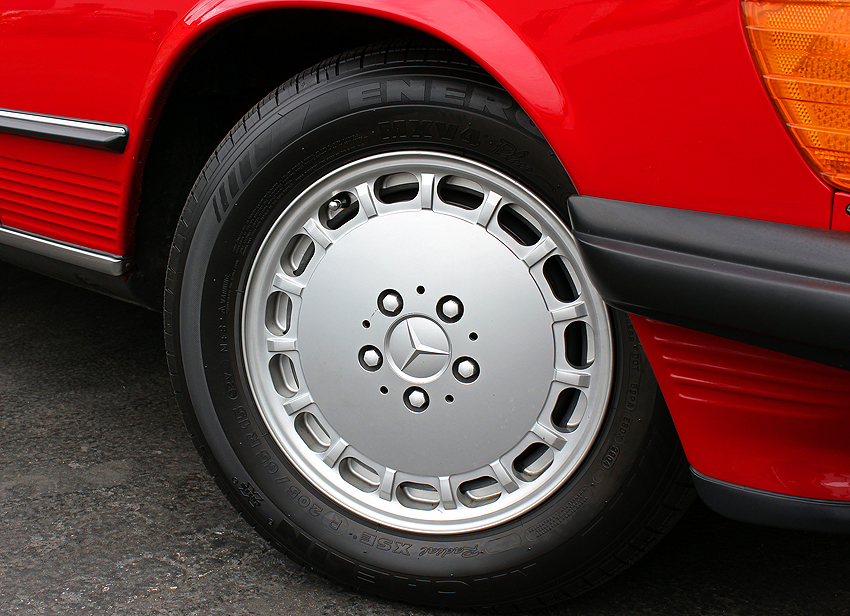 560SL 15-inch aluminum wheel
560SL 15-inch aluminum wheel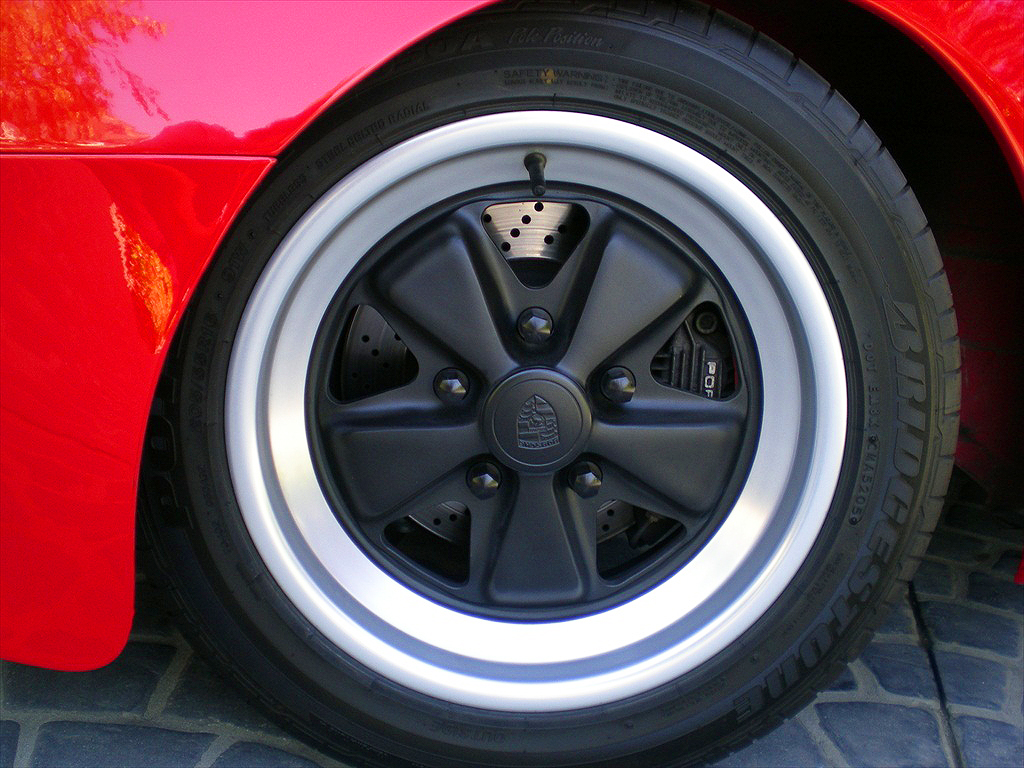 1981 Porsche 924 Carrera GT aluminum wheel
1981 Porsche 924 Carrera GT aluminum wheel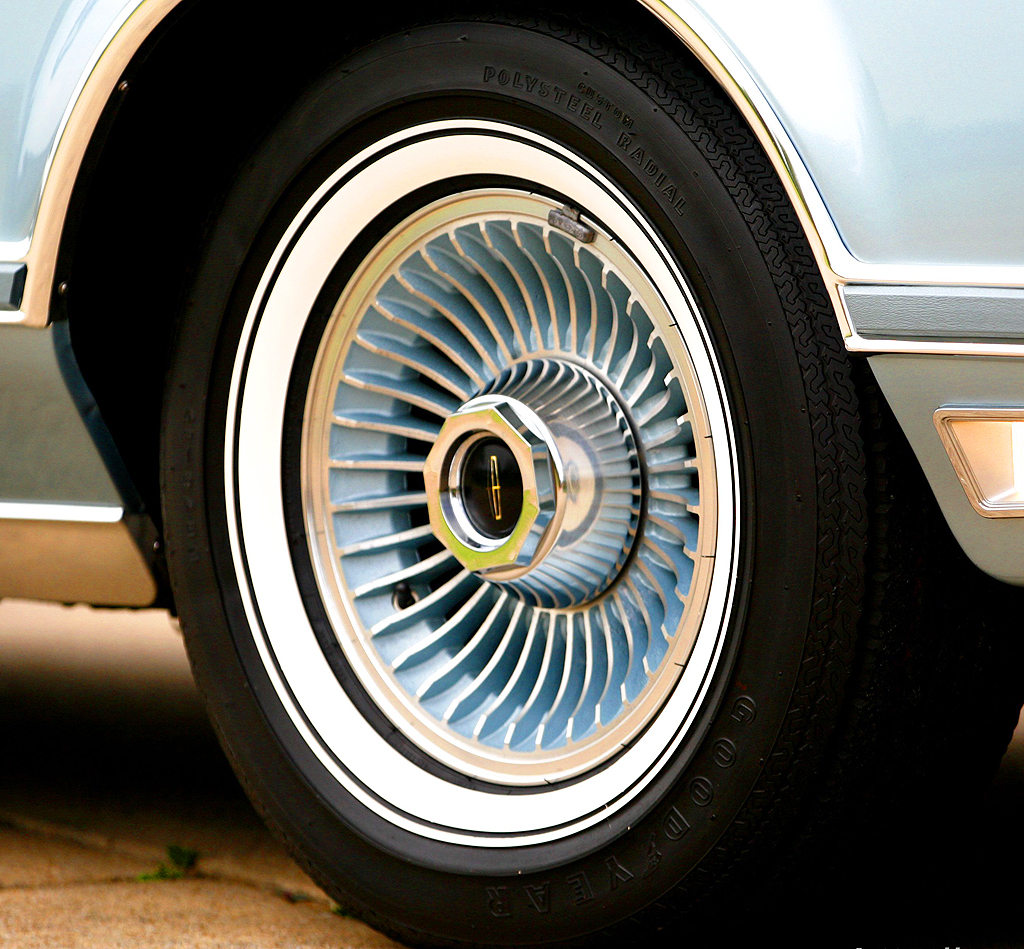 1978 Lincoln Mark V DJ blue wheel b(Photo credit: M. Garrett)
1978 Lincoln Mark V DJ blue wheel b(Photo credit: M. Garrett)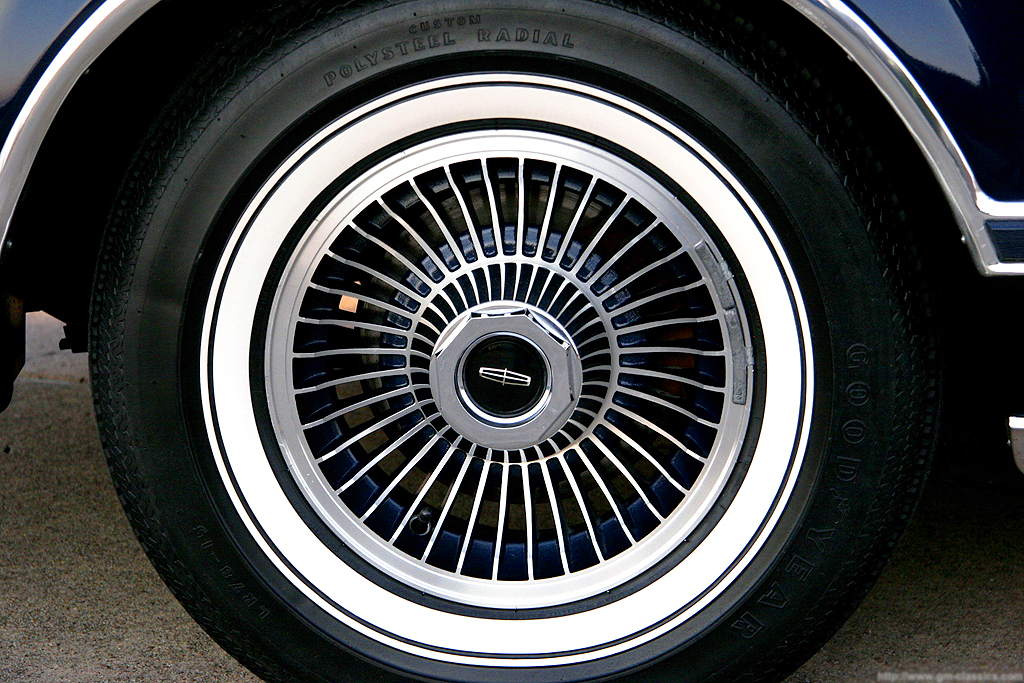 1979 Lincoln Mark V Collectors Series navy blue painted wheel(Photo credit: M. Garrett)
1979 Lincoln Mark V Collectors Series navy blue painted wheel(Photo credit: M. Garrett)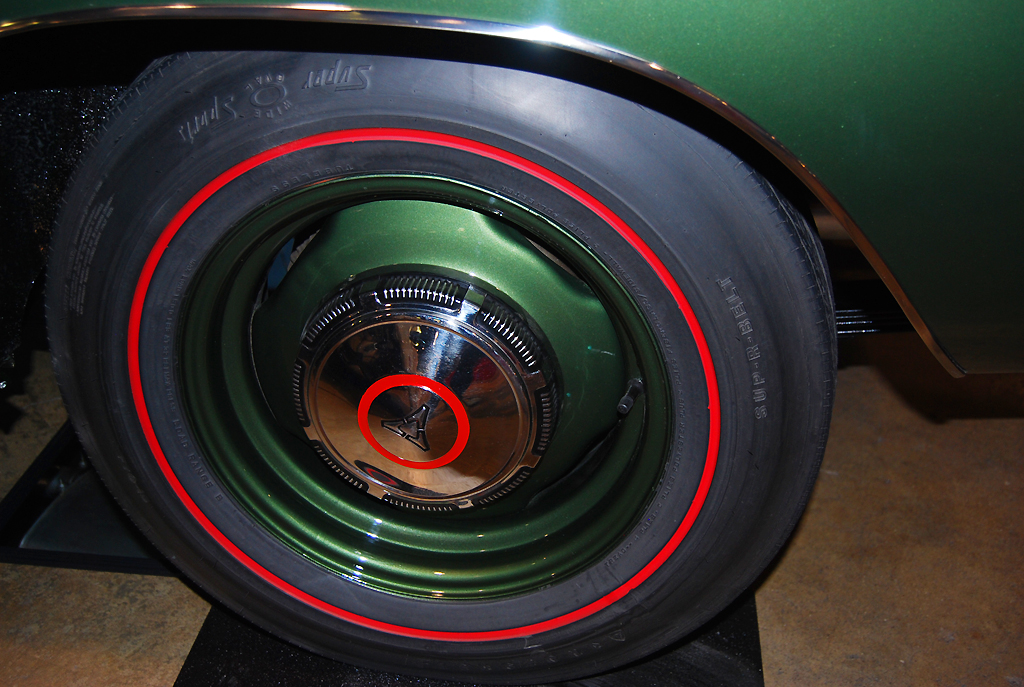 1969 Dodge Charger RT Hemi wheel with center hub cap
1969 Dodge Charger RT Hemi wheel with center hub cap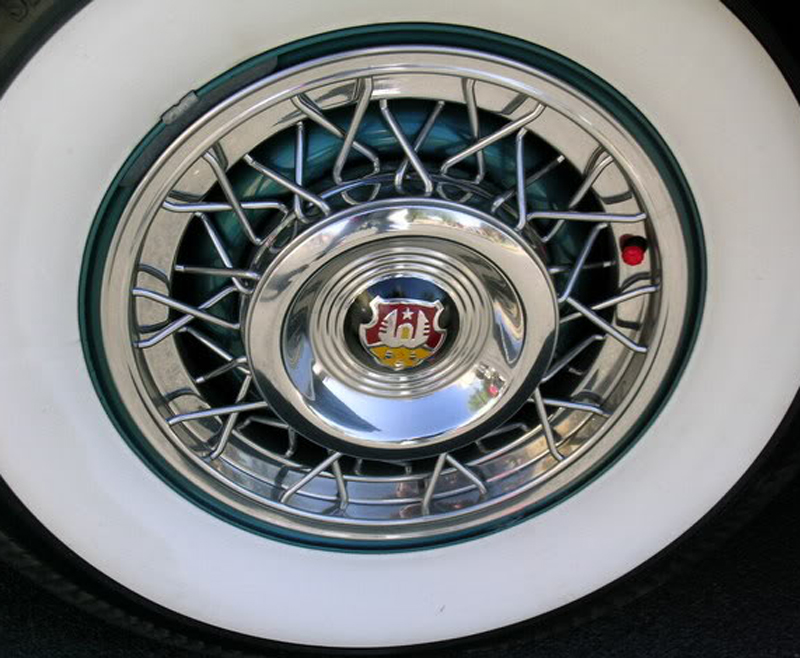 1953 Oldsmobile wire-wheel
1953 Oldsmobile wire-wheel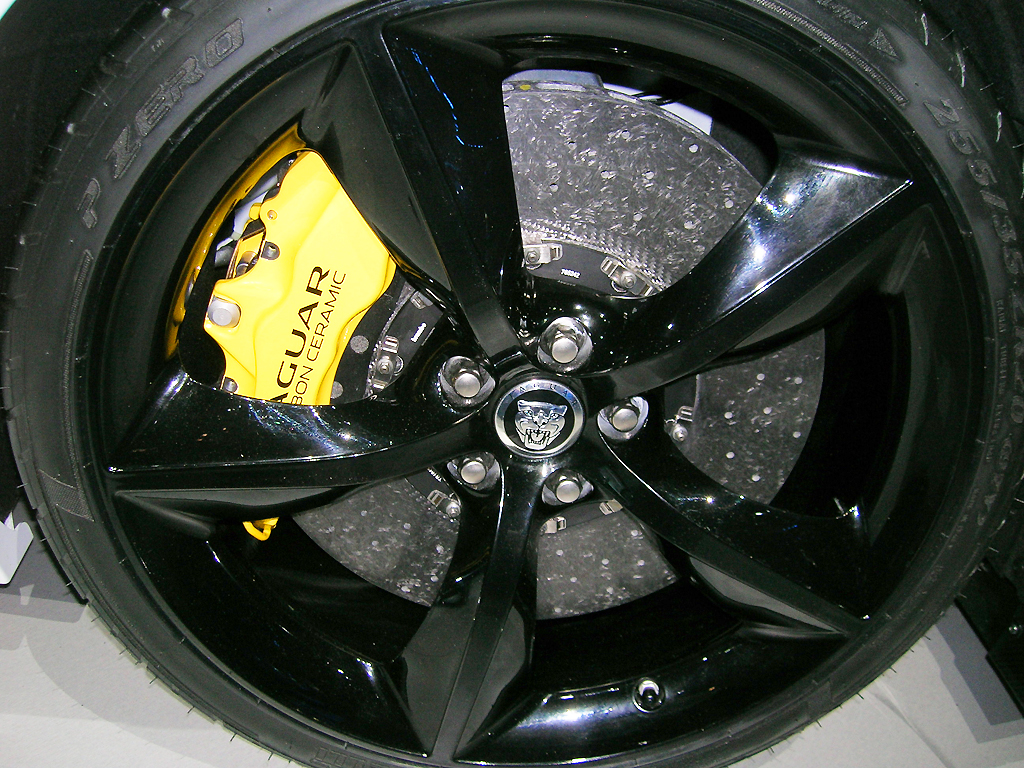 2014 Jaguar XK RS GT wheel at the 2013 New York Auto Show(Photo credit: Sean Connor)
2014 Jaguar XK RS GT wheel at the 2013 New York Auto Show(Photo credit: Sean Connor)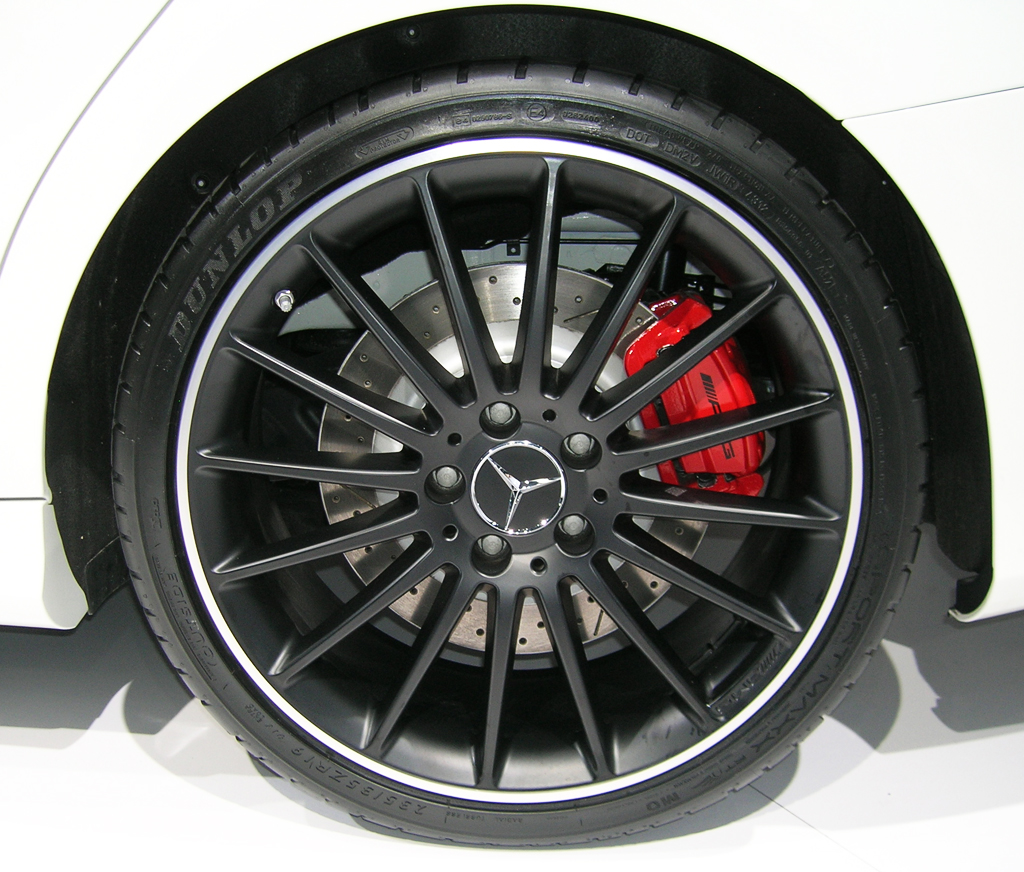 2014 Mercedes CLA45 AMG wheel at the 2013 New York Auto Show(Photo credit: Sean Connor)
2014 Mercedes CLA45 AMG wheel at the 2013 New York Auto Show(Photo credit: Sean Connor)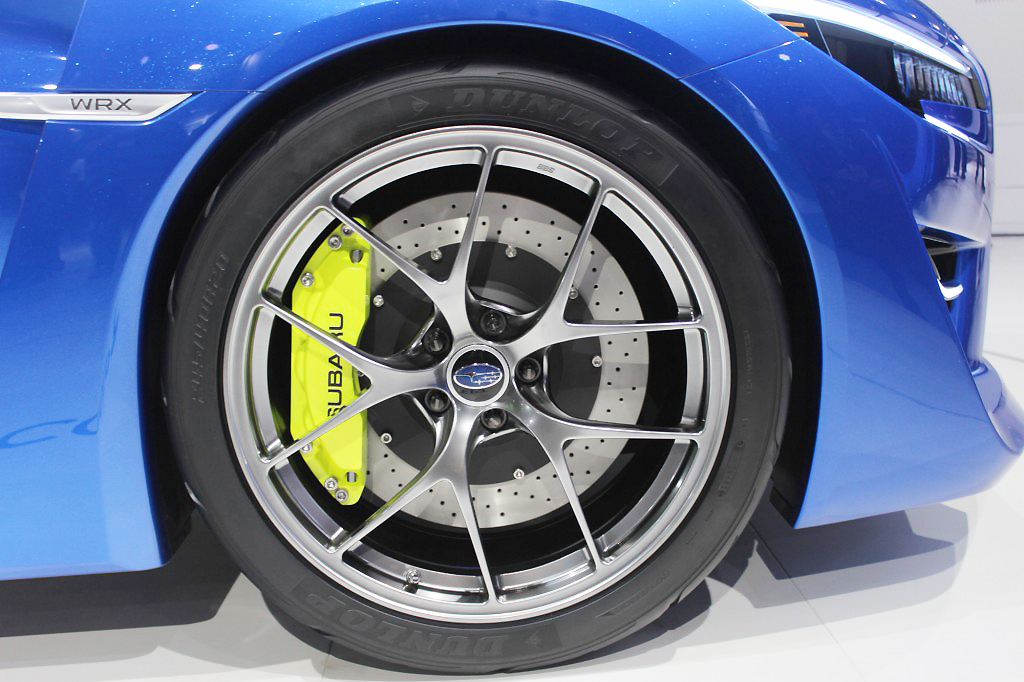 2013 Subaru WRX concept wheel at the 2013 New York Auto Show
2013 Subaru WRX concept wheel at the 2013 New York Auto Show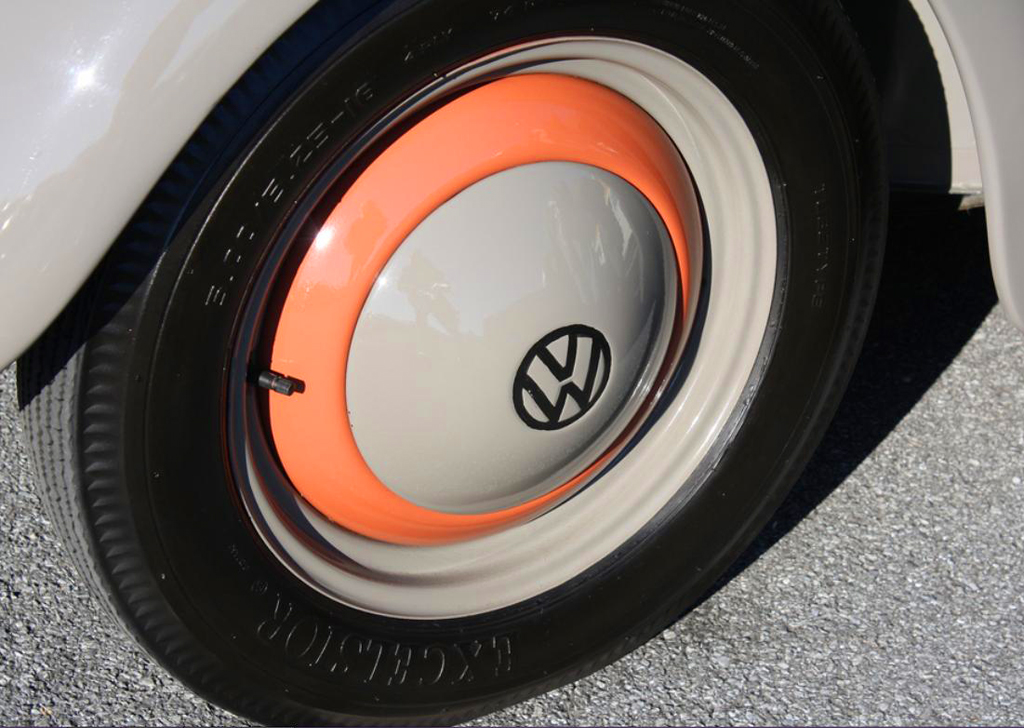 1952 Volkswagen wheelPhoto credit: L. Jacobs
1952 Volkswagen wheelPhoto credit: L. Jacobs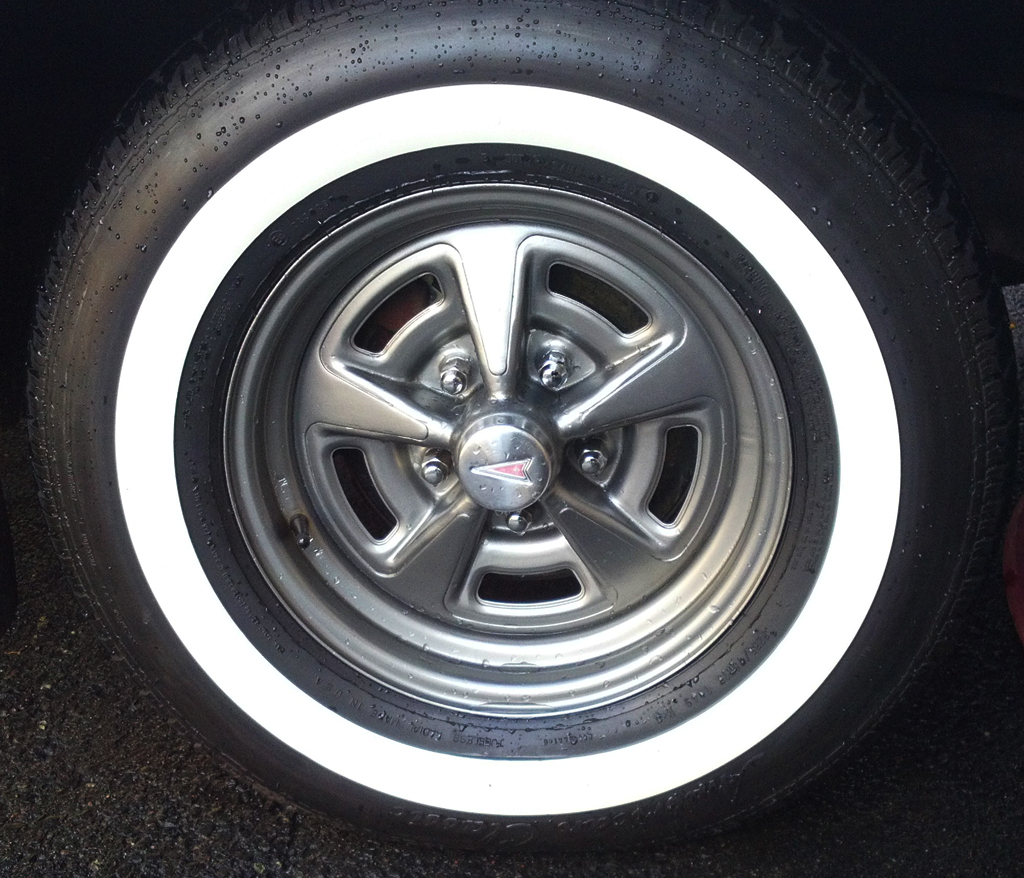 1975 Pontiac Grand Ville rallye wheelPhoto credit: Sean Connor
1975 Pontiac Grand Ville rallye wheelPhoto credit: Sean Connor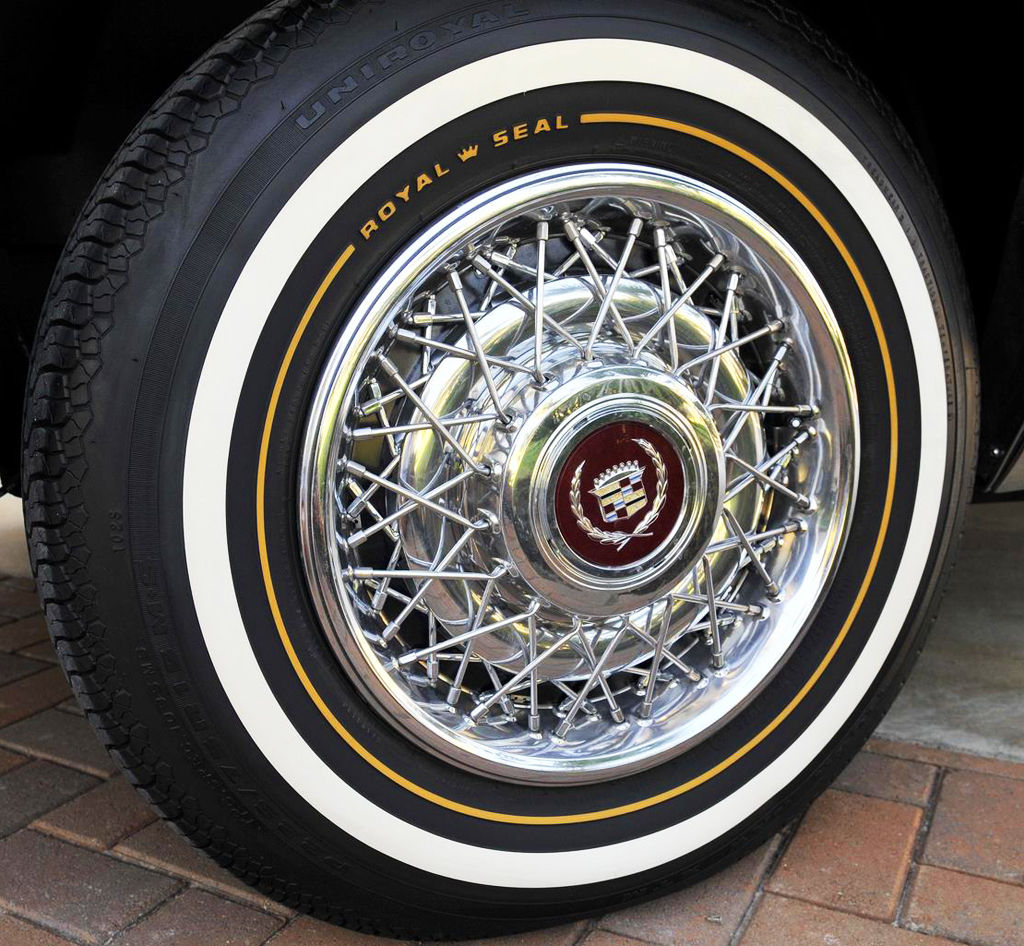 1991 Cadillac Fleetwood Brougham wire wheel cover
1991 Cadillac Fleetwood Brougham wire wheel cover Dodge Charger all-black police car wheel a
Dodge Charger all-black police car wheel a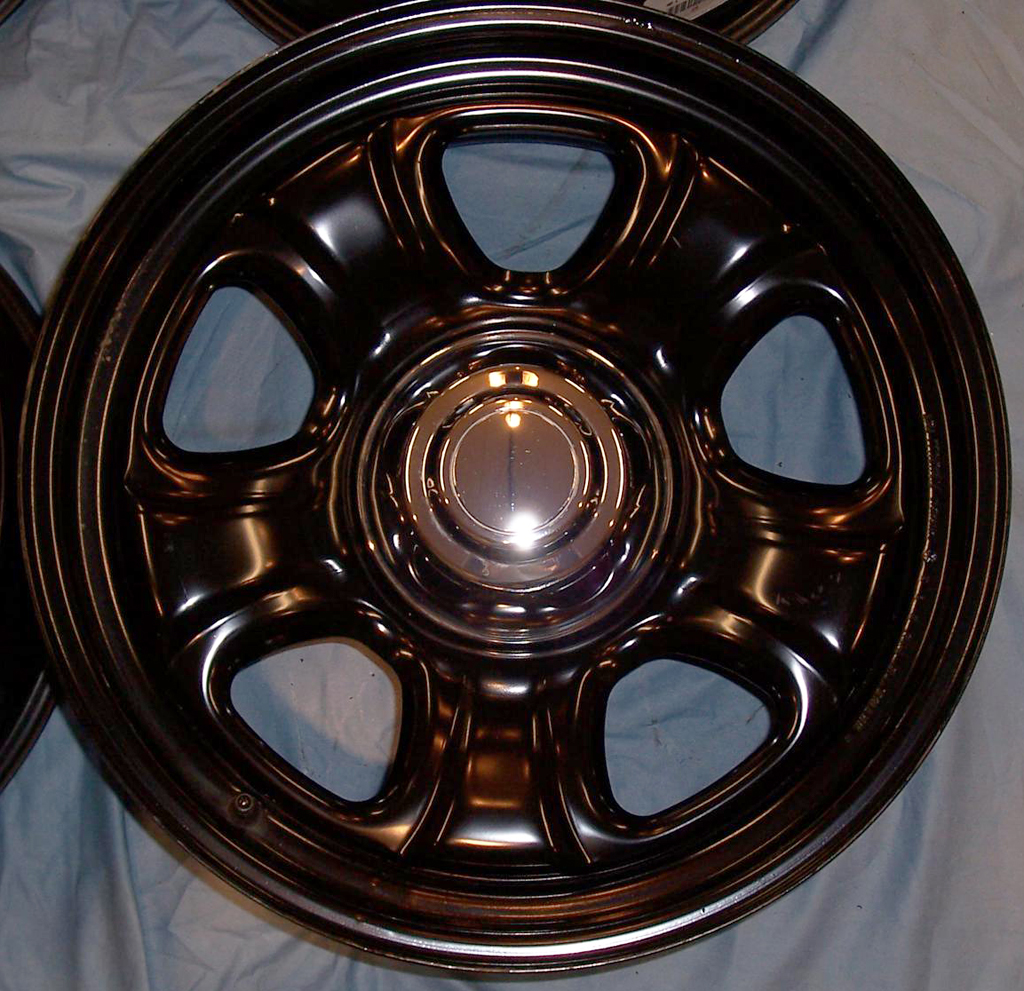 Dodge Charger all-black police car wheel b
Dodge Charger all-black police car wheel b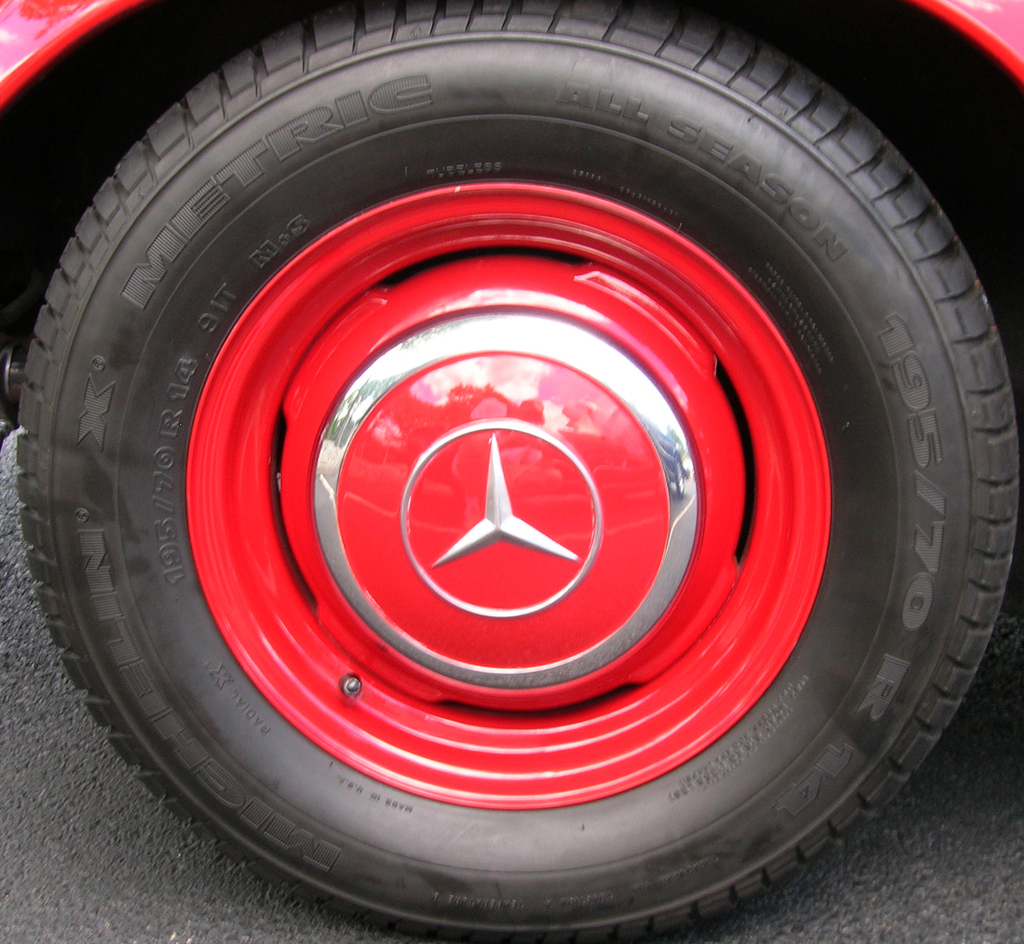 1963 Mercedes 230SL wheel at the 2013 June Jamboree in Montvale, NJPhoto: Sean Connor
1963 Mercedes 230SL wheel at the 2013 June Jamboree in Montvale, NJPhoto: Sean Connor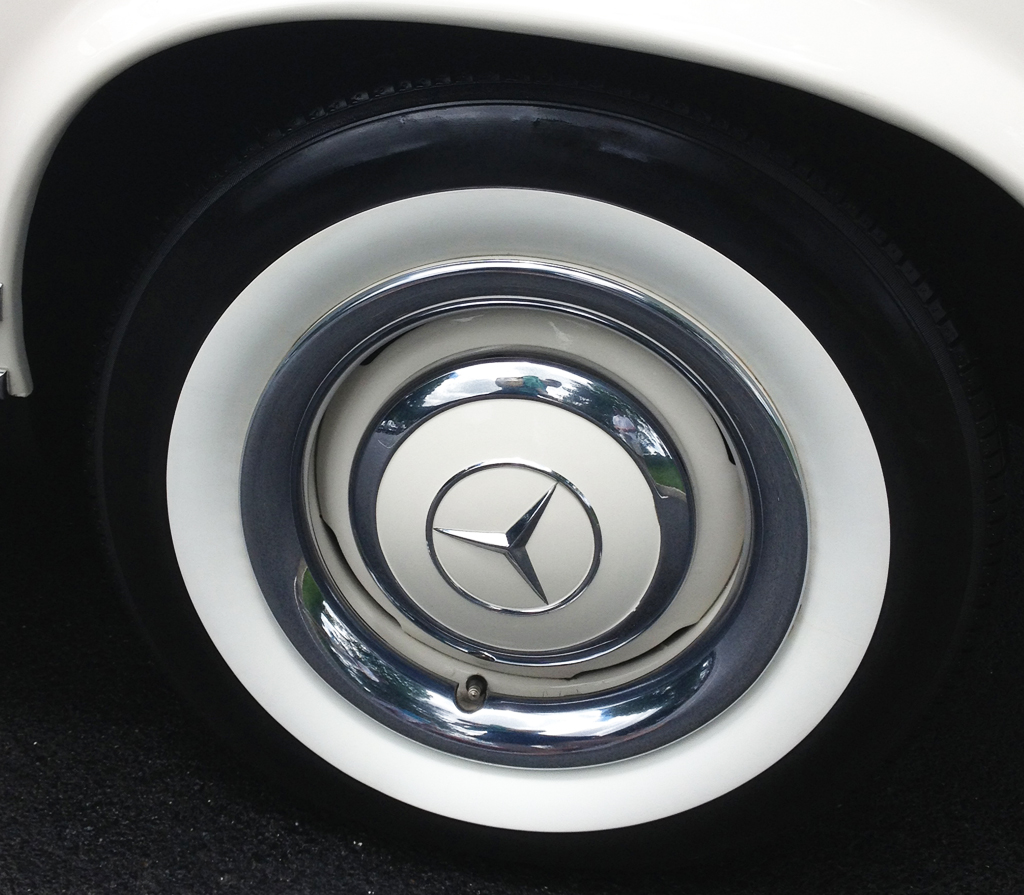 1964 Mercedes 230SL wheel at the 2013 Mercedes-Benz June JamboreePhoto: Kristi Burns
1964 Mercedes 230SL wheel at the 2013 Mercedes-Benz June JamboreePhoto: Kristi Burns
Commentary – Does being loyal to one car brand make you a glutton for happiness, or punishment?
Friend number 1 who collects Mercedes-Benzes recently jumped fences and bought a BMW. Friend number 2 who works for Mercedes-Benz corporate headquarters was horrified. Their debate on the subject made me wonder does being loyal to one car brand make you a glutton for happiness, or punishment? (Photo credit: Netcarshow.com)
Erica is a friend of mine who recently became the owner of a used 2006 BMW 750Li. An enviable purchase by any stretch of the imagination, but one she agonized about due to feelings of brand loyalty to another marque.
Erica had grown up a car buff with an appreciation of Mercedes-Benzes like I did, and bought her first one used (an ’88 190E) in 1996. We became friends after meeting in 1998 at a car club show. Today, their collection has grown to over a fourteen Benzes spanning from the mid-1970s to the mid-1990s.
Erica, her husband, and my wife have spent a lot of time together fixing, detailing, and displaying our vehicles at shows. Along the way we met Matt who works for Mercedes-Benz headquarters. Although a few years younger than Erica and myself, Matt shared the same fanaticism we did and bonded with us immediately. His first car in high school was a well-worn ’78 Mercedes 300 Diesel coupe, and he has owned nothing but Mercedes-Benzes since…fluctuating between two to four vintage ones at any given point, and leasing new ones on M-B employee price plans.
This 1979 Volvo advertisement makes a convincing argument that brand loyalty is the way to automotive nirvana. (Photo credit: Volvo Cars of North America)
On different levels, the three of us are living proof that when you have a propensity to collect cars and a fondness for a car make, owning one tends to lead to owning another until you reach an “equilibrium” with available space and funds. Not to mention spousal tolerance.
Matt saw Erica’s purchase of the BMW as a betrayal of the Mercedes-Benz marque and his employer he identified with so strongly. “Are you crazy, what’s wrong with you!?” he asked. I must admit I had a certain respect for Matt, because this man is so loyal to his favorite car company that he takes it personally when someone snubs or denounces a Mercedes. That’s commitment.
A healthy amount of the car-buying public will always be repeat buyers of the same make, no questions asked. I used to feel as Matt does, but after years of being in the automotive field my enthusiasm for various marques depends on how good what they’re offering is. For folks like Matt, car companies are akin to sports teams and not supporting your chosen one through thick and thin equates to being a traitor.
Contrary to what anyone living in my home state of New Jersey may believe, this sentiment is still alive and well especially among buyers of American full-size pickup trucks. Where my wife is from in Wisconsin, pure brand loyalty goes much further below the surface than bragging rights about horsepower or towing capacity. Ford guys always buy Fords, Chevrolet guys always buy Chevrolets, and neither group plans to switch sides any time soon.
This 2004 Mercedes advertisement focuses on die-hard loyalists. One of the pictures in this ad is of my friend “Matt” with his first car at age 18 wearing the blue graduation cap and gown. (Photo credit: Mercedes-Benz USA)
Brand loyalty represents being happy with what you’ve got. I envy that because I seem to be cursed with automotive wanderlust along with a nagging feeling there’s a better product is just over the next hill. For example, if I had bought a new Camaro SS I’d be tormented by the new Mustang Cobra coming out. And if I bought a Mustang Cobra then I’d be concerned Dodge was going to put a turbine engine in its Challenger SRT8.
The positive side is I’m not subject to any one carmaker’s styling or quality whims. In the automotive service business, it’s easy to see when manufacturers decide to save a few pennies where they think no one will be the wiser. And in my lifetime I’ve noticed many an automotive manufacturer waver on the important belief that producing the best car they can is the way to reach automotive nirvana. The cycle that seems so unfortunately consistent among reputable car makers is as follows: work up to producing high quality cars, gain customers, forget what got them there, cut corners on quality to save money, lose customers.
I’ve owned many Volkswagens and Audis, and these days I have gained great respect their products developed under the leadership of former company chairman Ferdinand Peich. I’ve seen General Motors forget priorities for decades until an awakening began five years ago. Even Toyota has suffered quality glitches and recalls in recent years, a victim of becoming too big too fast. Honda, BMW, Subaru, Ferrari and Porsche are examples that come to mind quickly attempting to think of car makers that have had strong ideals, and have never wavered from them. I hope to see an American brand become such an example – Ford and GM are on their way if they do not become sidetracked.
Because when it comes to something you’re passionate about, who wants to settle for mediocrity?
About Sean
Welcome to Classic Cars Today Online! We seek to explore the subject of classic vehicles from the 1950s through today. It is our belief that a car needn't be old to be respected and admired for graceful design, historical significance, and future value. As founder and Editor-In-Chief, I welcome contributions from you about your own car-related interests and ownership experiences. As far as myself, I've worked in the automotive service field and have been a contributor to Autoweek Magazine, The Star, Mercedes Enthusiast Magazine, Examiner.com and more. Currently, I'm a copywriter and own several foreign and domestic classic cars. In my spare time, you'll find me serving as Technical Editor and officer of several car clubs, being a concours car show judge, and meeting some great folks around the tri-state NY / NJ / Pennsylvania area at car shows. - Sean Connor